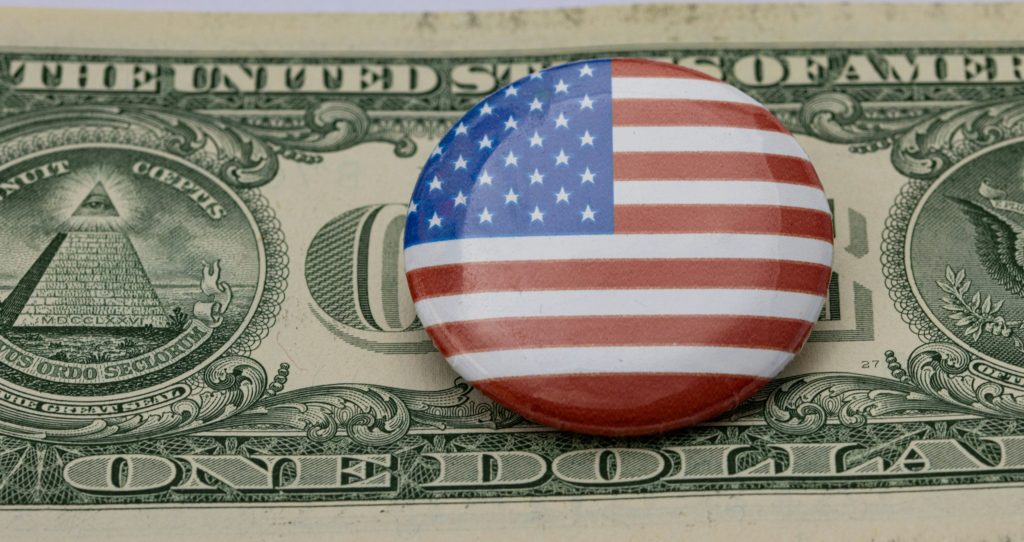The Pivotal Case Will Have Major Implications on Presidential Authority and International Shipping
When the Trump Administration announced sweeping new tariffs under the International Emergency Economic Powers Act (IEEPA), many businesses were left wondering: Can a president really use emergency powers to reshape trade policy? In the months since, the “Liberation Day” tariffs have been paused and unpaused and deemed illegal by federal courts. As of November 2025, the tariffs remain in effect while the case is appealed.
The question of authority has now reached the Supreme Court via “Learning Resources, Inc. v. Trump”, a case that could redefine the limits of executive authority in U.S. trade law and determine whether billions in tariffs were lawfully imposed. After arguments were heard in early November, industry experts, politicos, and even the President himself have wasted no time in reacting to the potential decision. However, no decision will become official for several weeks or possibly months.
The Rise of “Emergency” Tariffs
The case stems from a series of tariffs President Donald Trump imposed on a wide range of imported goods, citing national emergency powers under the IEEPA. Traditionally, U.S. tariffs are enacted under laws like the Trade Act of 1974 or Section 232 of the Trade Expansion Act of 1962, both of which explicitly authorize the president to adjust tariffs in response to specific findings, such as unfair trade practices or threats to national security.
The IEEPA, by contrast, was passed in 1977 to allow the president to regulate economic transactions during national emergencies, primarily as a sanctions tool to “block,” “freeze,” or “prohibit” specific economic activities involving foreign adversaries. It has been used for decades to manage targeted sanctions against hostile regimes, not to impose general import duties.
In 2025, Learning Resources, Inc., a Chicago-based educational toy manufacturer, filed suit against the Trump Administration. The companies argued that the tariffs had no legal foundation in the IEEPA, which they claim does not authorize the imposition of import duties. Their case made its way through the lower courts and is now before the Supreme Court.
At the core of “Learning Resources, Inc. v. Trump” are two questions:
- Does the IEEPA authorize the President to impose tariffs on imported goods?
- If so, does such broad delegation of power violate the Constitution’s separation of powers?
The Plaintiffs’ Argument: IEEPA Isn’t a Trade Tool
Learning Resources and the other companies involved argue that the wording and purpose of the IEEPA do not give the president the power to set tariffs.
They say that while the IEEPA allows the president to “regulate importation or exportation” during a national emergency, the word “regulate” does not mean “tax” or “charge duties.” In the past, Congress has always used clear terms like “tariffs” or “duties” when it wanted to give a president that kind of power.
They also point out that the IEEPA was created to handle targeted sanctions, such as blocking trade with specific countries, not to make large-scale changes to trade policy. The history of the law and how it has been used in the past both support this view.
Finally, the companies argue that letting the president use the IEEPA to create global tariffs would give too much power to one person without proper direction from Congress. They believe this goes against the Constitution and the limits the Supreme Court has set on presidential authority.
In short, Learning Resources believes the IEEPA should not be used as a way for the president to bypass Congress’s power to control trade and taxes.
The Government’s Argument: Tariffs Are “Regulation of Importation”
The Trump Administration, along with the Department of Justice, argues that the wording of the IEEPA gives the president enough authority to act.
They say the law allows the president to “regulate importation or exportation” during a national emergency, and that tariffs are simply one way to regulate trade. By using tariffs, the government can influence trade and protect the country’s economic interests.
They also point out that courts have long viewed tariffs as part of the government’s power to control foreign trade. The administration believes Congress wrote the IEEPA broadly on purpose so that presidents would have flexibility to act quickly in emergencies.
According to the White House, problems like global economic instability, unfair trade practices, and reliance on foreign supply chains made it necessary to declare a national emergency and take immediate action. They argue that Congress would not have been able to respond fast enough on its own.
If the Court agrees with this argument, it could greatly increase the president’s power to change trade policy without needing Congress’s approval.
Business and Industry Reactions
The reaction from the business community has been strong and divided.
1. Importers and Manufacturers
For companies like Learning Resources, the tariffs increased costs dramatically. The firm’s CEO stated that the uncertainty caused by fluctuating tariffs forced them to cancel expansion plans and delay major investments. Many small and mid-sized businesses, particularly those reliant on imported materials, claim they’ve been caught in the crossfire of unpredictable trade policy.
2. Retailers and Consumers
Retailers warn that higher import duties ultimately mean higher prices for consumers. Educational supply companies, electronics manufacturers, and toy producers say that the costs are passed through the supply chain, contributing to inflationary pressure in consumer markets.
3. Policy Analysts and Trade Experts
Trade analysts caution that a ruling upholding the administration could set a precedent allowing future presidents of any party to impose tariffs unilaterally on virtually any goods, at any time, under the guise of a national emergency.
Meanwhile, legal scholars have filed amicus briefs supporting both sides, recognizing the case as one of the most significant tests of executive power in modern trade law.
4. President Trump
President Trump offered his own unique view on the case. He claimed, in a post on Truth Social several days after arguments, that “unwinding” the tariffs “would truly become an insurmountable National Security Event, and devastating to the future of our Country – Possibly non-sustainable!”
Fox Business reported the U.S. collected more than $213 billion in tariff revenue through September 2025. U.S. importers counter Trump’s opinion by pointing out it would be relatively straightforward to return the money from tariffs, since U.S. customs paperwork includes detailed information on all shipments and payments.
A Case that Could Redefine Presidential Power
While the main focus of “Learning Resources, Inc. v. Trump” is understandably about the process of international trade and the costs passed onto consumers, it is really about the limits of presidential authority in economic policy. The Court’s decision will determine whether emergency powers can be used to reshape trade relationships and impose broad economic measures without explicit congressional action.
For importers, manufacturers, and global businesses, the stakes are enormous. For policymakers and constitutional scholars, the case may become a landmark decision in defining how far the “emergency state” can reach into the nation’s economic life.
As the Supreme Court prepares to decide, companies across America are watching closely and waiting to see how the balance between Congress and the President will be redrawn for decades to come.
Stay in Control with Sheltered International
Global supply chains are constantly shifting. SiShips puts the shipper in control, offering efficient and cost-effective ways to transport your product.
To learn more about our personalized expertise and state-of-the-art software, contact us today.




